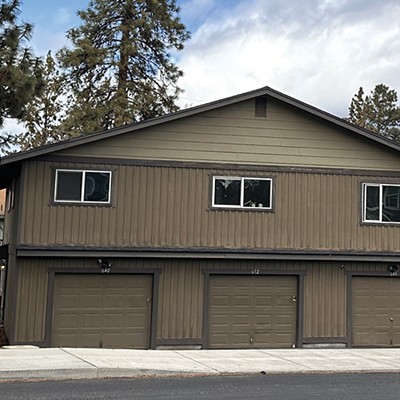Pull up to a gas station in Oregon and it's easy to determine whether someone lives in the state or not. If the driver moves to start pumping their own gas, it's a sure tell that they're from out of state. Oregonians don't have to pump their own gas and haven't done so since 1951. But if you're in a number of rural Oregon counties, that's all changing on Jan. 1, 2018.
On June 6, Gov. Kate Brown signed into law House Bill 2482, allowing for self-service fuel dispensing in low-population counties—including Jefferson, Hood River, Malheur, Union, Wheeler, Harney and several other eastern Oregon counties. Since these are "low-population" counties, the thought was that it was "impractical to staff a retail facility for fueling 24 hours a day," according to language in the staff measure summary, and that a closed gas station in a rural area could leave drivers stranded and strain Oregon State Police resources. To be clear, however, retail locations that sell goods and services would still be required to staff someone to dispense fuel from 6 a.m. to 6 p.m.
Still, these are also the counties that suffer the most when it comes to employment. In December, the U.S. Bureau of Labor Statistics reported Jefferson County's unemployment rate to be 6.6 percent, compared to Deschutes County at 4.4 percent and the city of Bend at 3.2 percent.
[image-4]Among the many reasons, the notion of full service fueling was brought forth in Oregon as a way to prevent spillage, but it's also long been touted as a way to create jobs. According to an Oregon State University economist, that also adds about 3 to 5 cents per gallon to our fuel costs—but a comparison of Oregon's rates compared to neighboring states finds the cost differences are negligible, if they exist at all.
In a county such as Deschutes County, where jobs are, at present, so abundant that many employers already pay well above even the new state minimum wage set for the county, the notion that we might not need to create jobs in this way might make sense. In those more rural parts of the state, however, where some lawmakers continually decry the lack of jobs, this move takes away jobs much needed by a sector of the population who may not otherwise be able to find employment. Additionally, in some towns, the local gas station is one of the only businesses still in operation. And that's why we find it puzzling that this bill passed with almost no opposition.
In a political climate in which oil and gas and coal companies are suddenly finding themselves not quite as beleaguered as they have been in past years, we find it disheartening to see the Oregon Legislature trend in that direction, too. Since it's the "poor oil companies" that now get to benefit financially from cutting back on their staffs, we call a fuel foul on this one.





















